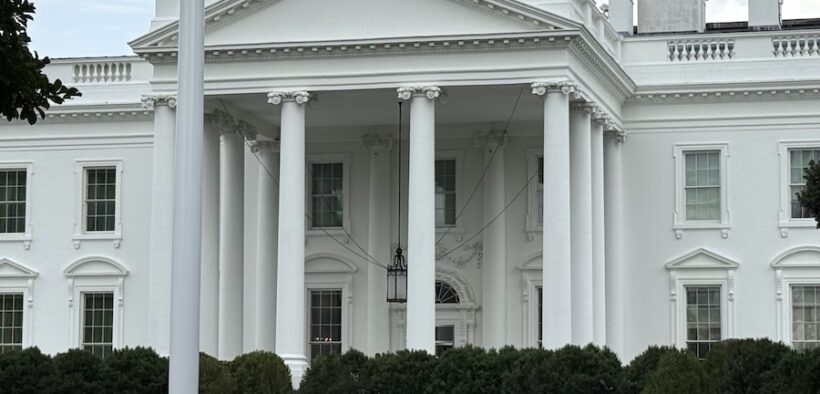Puerto Rico firm finds uncertain gains in Trump’s second term

A Puerto Rico-based advisory firm has released the latest edition of its index evaluating the progress of President Donald Trump’s second term. The report notes modest improvement but warns of underlying economic volatility and policy instability.
The latest Government Progress Index (GPI), developed by Birling Capital, shows a 9.1% improvement from the 100-day mark, assigning a score of 18.75 out of 50 for the first six months of the term. The report highlights key risks to the U.S. economy, including shrinking consumer confidence, mounting national debt and erratic trade policy.
The GPI uses a proprietary algorithm to evaluate macroeconomic indicators, policy implementation, public sentiment and institutional performance. Drawing on more than 20 data sources, it incorporates weighted measures such as gross domestic product growth, unemployment, inflation and consumer sentiment.
“The Government Progress Index allows any citizen to understand what success looks like and learn how to recognize it,” said Francisco Rodríguez-Castro, Birling’s chief executive. “While the GPI score has increased slightly, the broader picture reveals uncertainty.”
Among the report’s findings is a sharp reversal in economic growth. After expanding at a 2.8% annual rate in January, U.S. gross domestic product contracted by 0.5% in the first quarter. Although the Federal Reserve Bank of Atlanta’s GDPNow model projected 2.4% growth in the second quarter, investor and consumer confidence remained low. The University of Michigan’s Index of Consumer Sentiment dropped nearly 18% since January, recovering only slightly to 60.7 in July.
The national debt rose from $35.46 trillion to $36.22 trillion, pushing the debt-to-GDP ratio beyond 131%. That increase coincided with a credit rating downgrade from AAA to AA+, reflecting reduced faith in the country’s long-term fiscal outlook.
The report also highlighted policy unpredictability, particularly in trade. Birling cited 28 instances between April and July in which major tariff announcements were reversed, delayed or softened after market or corporate pushback. The firm referred to the pattern using a recently coined term: “TACO Tariffs,” short for “Trump Always Chickens Out.”
Examples include a proposed round of tariffs unveiled on April 2 — dubbed “Liberation Day” — targeting 31 countries, which was rescinded within 24 hours. A planned 125% tariff on Chinese lithium batteries was later reduced to 10% following automaker concerns.
“Trade policy is now seen less as a framework and more as a mood barometer,” the report states.
Despite this unpredictability, the report notes moderate gains in some economic indicators. Inflation showed signs of easing, with the Consumer Price Index falling from 2.89% to 2.67%, and the Producer Price Index dropping from 3.44% to 2.34%. U.S. stock markets also rebounded, with the Nasdaq rising 6.8% and the S&P 500 up 5.2% by July.
The labor market remained mixed. While the unemployment rate held steady at 4.1%, labor force participation declined slightly from 62.5% to 62.3%. Homeownership fell to 65.1%, reflecting affordability concerns tied to rising borrowing costs.
Trump’s approval rating declined from 47% in January to 43% in July, mirroring persistent unease among consumers and investors. Early executive actions energized his base, but “broad-based enthusiasm has waned,” the report said.
Rodríguez-Castro said the GPI is intended as a tool for business leaders, investors and policymakers to gauge government performance in real time.
“In politics, as in economics, sentiment can move faster than fundamentals,” he said. “But it is the fundamentals that determine survival.”
The report concludes that while the administration has achieved gains in certain areas, the combination of inconsistent decision-making, trade volatility and rising debt has weakened public confidence and global credibility. The current GPI score reflects a fragile balance, the report warns, and underscores the need for greater stability in the months ahead.











